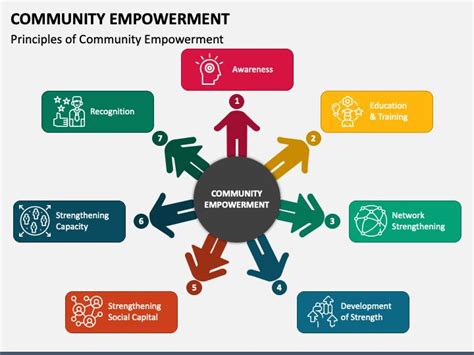Overview: A Noble Path of Impact
The social services major is a transformative field of study that equips students with the knowledge, skills, and passion to address critical societal challenges. This interdisciplinary program explores the complex interplay between individuals, families, and communities, empowering graduates to become agents of change.

Career Paths: A Range of Opportunities
With a social services degree, you unlock a world of rewarding career options in:
- Social Work: Assist individuals, families, and communities in overcoming challenges and improving their well-being.
- Counseling: Provide therapeutic support and guidance to individuals facing mental health, emotional, and behavioral issues.
- Community Development: Facilitate community-based initiatives that promote social and economic justice.
- Nonprofit Management: Lead and manage organizations dedicated to serving the underprivileged and addressing social problems.
- Public Policy: Advocate for policies that improve the lives of marginalized populations.
Program Highlights: A Comprehensive Curriculum
Social services programs typically offer a comprehensive curriculum that covers:
- Social Theory and History: Explore the foundations of social welfare and the evolution of social policies.
- Human Behavior and Development: Understand the psychological, social, and cultural factors that shape human behavior.
- Social Work Practice: Develop skills in interviewing, assessment, counseling, and case management.
- Community Organization and Development: Learn about community mobilization, program planning, and evaluation.
- Social Policy and Advocacy: Analyze social welfare policies and advocate for systemic change.
Student Experiences: A Transformational Journey
Social services students engage in various practical experiences that enhance their learning and prepare them for the field:
- Field Placements: Gain hands-on experience in social service settings, working with diverse populations.
- Community Service: Participate in volunteer activities that contribute to the well-being of the community.
- Research Projects: Conduct research on social issues, developing a deeper understanding of the challenges and opportunities they present.
- Professional Development: Attend conferences, workshops, and training sessions to further their knowledge and skills.
Impact and Relevance: Making a Difference
Social services graduates have a profound impact on society:
- Supporting Vulnerable Populations: Provide essential services to individuals and families facing poverty, addiction, mental health issues, and other challenges.
- Transforming Communities: Facilitate community-building efforts, promoting inclusiveness, equity, and economic opportunity.
- Advancing Social Justice: Advocate for policies that address systemic barriers and promote fair and equitable treatment for all.
Key Statistics: A Growing Field
- According to the U.S. Bureau of Labor Statistics, the employment of social workers is projected to grow 12% from 2020 to 2030, faster than the average for all occupations.
- The median annual salary for social workers was $50,470 in May 2021, with the top 10% earning more than $86,960.
Personal Reflections: A Fulfilling Career
“The social services major has provided me with the tools and knowledge I need to make a meaningful contribution to my community. I am passionate about helping others and empowering them to overcome challenges.” – Emily Carter, Social Services Graduate
“Working as a social worker has been an incredibly rewarding experience. The ability to help people navigate difficult times and improve their lives is truly fulfilling.” – John Smith, Social Worker
Conclusion: A Path to Purpose
A social services major is not just a degree; it is a commitment to making a difference in the world. Graduates emerge as skilled professionals with a deep understanding of social issues and a passion for serving others. By empowering individuals and transforming communities, social services professionals play a vital role in creating a more just and equitable society.
Appendix: Tables
Table 1: Common Courses in Social Services Programs
| Course | Description |
|---|---|
| Introduction to Social Work | Overview of the field of social work, including history, values, and ethical principles |
| Human Behavior and the Social Environment | Exploration of the psychological, social, and cultural factors that shape human behavior |
| Social Work Practice I | Development of skills in interviewing, assessment, case management, and counseling |
| Social Policy and Analysis | Examination of social welfare policies and their impact on individuals and communities |
| Field Placement I | Supervised practical experience in a social service setting |
Table 2: Career Paths for Social Services Graduates
| Career | Description |
|---|---|
| Social Worker | Provide social services to individuals, families, and communities |
| Counselor | Provide therapeutic support and guidance to individuals facing mental health, emotional, and behavioral issues |
| Community Development Specialist | Facilitate community-based initiatives that promote social and economic justice |
| Nonprofit Manager | Lead and manage organizations dedicated to serving the underprivileged and addressing social problems |
| Public Policy Analyst | Analyze social welfare policies and advocate for systemic change |
Table 3: Field Placements in Social Services Programs
| Field Placement | Description |
|---|---|
| School Social Work | Provide social services to students in school settings |
| Hospital Social Work | Provide social services to patients and families in hospital settings |
| Mental Health Social Work | Provide social services to individuals with mental health issues |
| Child Welfare Social Work | Provide social services to children and families involved in the child welfare system |
| Community Development Social Work | Participate in community-based initiatives that promote social and economic justice |
Table 4: Professional Organizations for Social Services Professionals
| Organization | Description |
|---|---|
| National Association of Social Workers (NASW) | The largest professional organization for social workers in the United States |
| American Counseling Association (ACA) | A professional organization for counselors in all specialties |
| Community Development Society (CDS) | A professional organization for community development professionals |
| Nonprofit Leadership Alliance (NLA) | A professional organization for nonprofit leaders |
| Public Policy Institute (PPI) | A nonpartisan think tank that conducts research on public policy issues |
